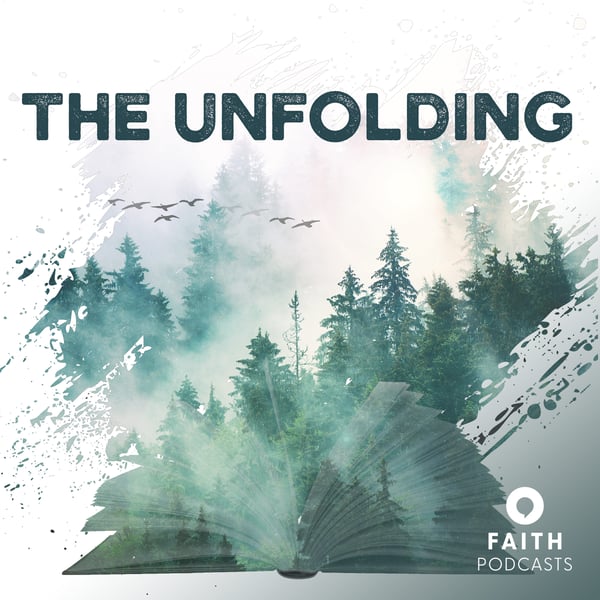Unfolding Short Stories: “What does it look like for a coral biologist to minister to creation?” Rachel Jordan
The Unfolding
Northwestern Media
4.9 • 809 Ratings
🗓️ 24 June 2025
⏱️ 7 minutes
🧾️ Download transcript
Summary
“What does it look like for a coral biologist to minister to creation?” For Rachel Jordan, that question became painfully real when the reefs she studied began to vanish. As she searched for answers in both science and Scripture, Rachel began to see a bigger redemption story and a calling to bring restoration to God’s underwater creation.
If you’re interested in Rachel’s book, you can discover more here: If the Ocean Has a Soul A Marine Biologist's Pursuit of Truth through Deep Waters of Faith and Science
Transcript
Click on a timestamp to play from that location
| 0:00.0 | God's story, your life. |
| 0:05.0 | Unfolding short stories. |
| 0:10.0 | Marine biologist Rachel Jordan spent years diving among coral reefs, |
| 0:16.0 | until a deadly disease swept through, killing the very creatures that she had long studied. But even as she |
| 0:23.2 | watched the beauty fade, Rachel began to see her work as an invitation to minister to creation, |
| 0:29.9 | trusting in the God who is restoring all things. My name is Rachel Jordan. I am a professional |
| 0:36.4 | marine biologist, a lay theologian, and now a storyteller. |
| 0:40.7 | One of the things that I've experienced in my career and my personal life that's made me say, wow, God, is the way that I see God and the cosmic story of what Jesus has done for all of creation from Genesis to Revelation, |
| 0:57.1 | the way that that restoration story is represented through coral science. I study these amazing |
| 1:03.9 | underwater creatures that are typically firmly fixed to the substrate of the ocean. They're |
| 1:09.5 | in one location for their whole |
| 1:11.2 | lives. They do not senes. Corals don't age. They can basically live on forever because their cells |
| 1:18.4 | have this everlasting regenerative ability. They're phenomenal animals and they're in trouble. |
| 1:25.3 | Quarles around the world are rapidly declining because the environment |
| 1:28.5 | of the ocean is changing faster than corals can keep up with. Basically, their health is at risk, |
| 1:35.1 | and we're seeing an increase in bleaching events where corals get extremely stressed and are more |
| 1:40.9 | likely to die. We're also seeing extreme increases in coral diseases. |
| 1:46.6 | One of the diseases that has dramatically impacted my life and my job is stony coral tissue loss |
| 1:53.1 | disease, commonly called SCTLD. And this disease swept down the coast of Florida during my time |
| 2:00.1 | as a coral biologist for Dry Tortugas National Park, about 70 miles south of Key West. |
| 2:07.4 | It's actually a little bit closer to Cuba than to the mainland United States. |
| 2:12.2 | While I was coral biologist at the park, I was getting to scuba dive and drive boats and work with a team of field scientists |
... |
Please login to see the full transcript.
Disclaimer: The podcast and artwork embedded on this page are from Northwestern Media, and are the property of its owner and not affiliated with or endorsed by Tapesearch.
Generated transcripts are the property of Northwestern Media and are distributed freely under the Fair Use doctrine. Transcripts generated by Tapesearch are not guaranteed to be accurate.
Copyright © Tapesearch 2025.

